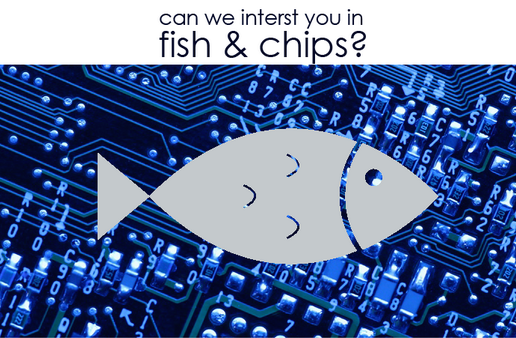Marc Andreessen caused an uproar when he famously stated that software is eating the world. Here's how software can take a sip from our oceans.
What is a classic scene that comes to mind when you think about our oceans? More often than not it's a picture perfect sunset splashed with the sounds of powerful waves crashing on the shoreline. What I'm about to share with you will make you rethink this scene. I invite you to imagine our oceans in a new light. I invite you to see our oceans as a big sea of code with algorithms as its waves and realize you can hack it!
 Credit: Fishackathon
Credit: Fishackathon
As a digital strategist on the Fishackathon project I saw first-hand the struggles coastal communities face due to a lack of technological solutions. For instance, data collection is labor intensive and done by hand through the use of pen and paper. This crucial data solves urgent problems such as illegal fishing. It also enables fishers in rural areas to register their vessels with local governments. Hardware devices and sensors are unavailable leaving measurements and species identification to rulers and dated field manuals.
The economic impact is massive as well. It's estimated that the fishing industry will lose between $17 to $40 billion dollars because of climate change on marine environments by 2050. Software is busy eating the world and these challenges open up the opportunity for it to have a drink from our oceans. Especially since the internet is a series of tubes cross connected under the depths of our oceans.
Now you might feel excited to fire up your favorite IDE and start coding away, but before you do it's important to understand the scope of what's possible when it comes to creating software solutions for our oceans. An important consideration is which programming language you will be building your solution in and the transparency of data.
Open source languages like Ruby, Python and JavaScript are popular in the hacker community but when it comes to implementing software solutions for our oceans on a government level many governments have a preference for enterprise languages like Java, Objective C, Cobol and .NET. However when it comes to data transparency there is some level of flexibility with local authorities.
Another major road block when it comes to implementing code to save our oceans is the high level of illiteracy in developing coastal communities along with dozens of local dialects. Your tech solutions will have to make use of creative and innovative ways around this while at the same time dealing with limited mobile service in these areas and out at sea.
Many ocean communities and governments are skipping out on desktop computing and joining the mobile revolution. Their chosen devices are typically low cost Symbian phones followed by Android smart phones and tablets. This creates a massive vacuum for mobile web based solutions that work across all platforms and browsers when it comes to choosing a platform to start developing on.
So excited to welcome @JohnKerry and @LeoDiCaprio to our #mFish booth for #OurOcean2014 @GSMA @withtone @debass pic.twitter.com/k10TakQItb
— GP at State (@GPIAtState) June 17, 2014
The possibilities are endless when it comes to disrupting our oceans through technology. Even Google is considering investing millions of dollars into a new under the sea cable that will connect its data centers in Japan and Oregon. You may also want to consider impactful low tech solutions like the touch screen waterproof bag which comes with communications company Tone's mFish kit. It allows fishers to use their mobile phones out in rough ocean conditions and managed to catch the eye of Leonardo Dicaprio. You can also explore creating open source platforms for fishers like GreenWave's 3D restorative ocean farming protocol.
We're just surfing the waves of what's possible when technology gets a drink from our oceans. Local governments, fishers and coastal communities are ready to work with technology communities across the globe. Find a mate and start coding away as you set sail on a new technological adventure to disrupt our oceans. Your code might just lay the foundation for the next big thing and support the 3 billion people that rely on our oceans for their livelihoods!
If you would like to add to the conversation please feel free to share your thoughts in the comment section below and share this article.